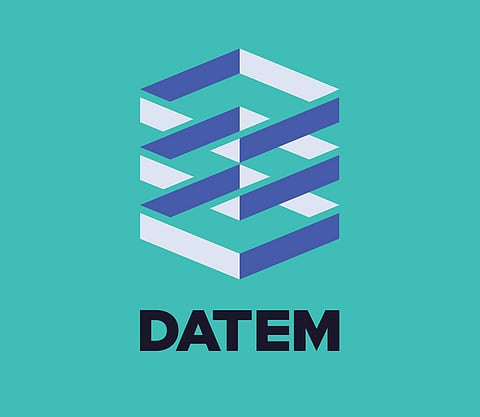
- NEWS
- the EDIT
- COMMENTARY
- BUSINESS
- LIFE
- SHOW
- ACTION
- GLOBAL GOALS
- SNAPS
- DYARYO TIRADA
- MORE

Construction company Datem's firm position to go after its principal, real estate giant Megaworld, has been described as a "suicide mission," but its top officials insist the builder is only resorting to remedies provided under the contracts and is banking on the truth.
Megaworld's standard contract form, Datem president Lesley Villanueva said, contains a "no arbitration" clause. A Megaworld contract specifies that conflicts should be settled through the courts instead of the usual recourse of addressing differences through the Construction Industry Arbitration Commission, or CIAC.
This process is more tedious than the average three months of arbitration through the CIAC.
"We did not go public about the dispute. We merely went with the only option, which is via the regional trial court and not arbitration," Villanueva said.
"Whether or not the media picked it up, we have no control over that as these are already public documents," she added.
Datem filed a complaint after Megaworld reneged on payments based on a mutual agreement over several real estate projects.
Under the agreement, Datem would transfer completed projects "on the premise that Megaworld shall pay all claims."
Megaworld countered by accusing Datem of chronic delays in the implementation of the projects, which are the subjects of the mutual settlement.
Datem legal counsel Rufino Policarpio III said the allegations by Megaworld confirm that it had no intention to be bound by or to comply with its obligations under the mutual agreement.
"We have to do it, they have to stop because they are presenting one thing while doing another," he said.
According to the lawyer, the legal costs are prohibitive when you file a case against a big company such as Megaworld.
Common story
Policarpio said most of the contractors with pending claims against Megaworld have a common story: the "non-payment of retention and billings."
"When a project is about 90 percent complete, the payments are withheld," the lawyer said.
The bulk of Datem's claims consist of retention money.
"Retention money is the amount [held back] every time there is a progress billing. Ten percent of the actual payment is retained," he said.
The money retained is remitted at the end of the project. The project owner deducts amounts for whatever is incurred by the contractor, including the cost of defects.
Datem had proposed an increase in the cost of projects with Megaworld due to the effects of the lockdowns during the pandemic, but this was rejected by the giant firm.
Since payments were withheld, Datem had to scale down. "We were spending, but we were not getting any payments from Megaworld," Policarpio said.
"That hurt our cash flow since Megaworld withheld payments for months," he said.
Both the project owner and contractor then agreed to end their business relations.
"So, negotiations took place then later we agreed to disagree and part ways peacefully," Policarpio said.
An agreement was then signed for the turnover of the projects to Megaworld, while Datem expected to be paid.
"Megaworld paid an initial P13 million, and then nothing followed," he said.
"So, that actually is a modus since other smaller contractors shared that they got the same treatment from Megaworld," he added.
Other contractors are running to the courts to enforce their claims against Megaworld.
While Datem filed an attachment on five properties over its P873-million claim, other contractors had simple claims complaints.
"There is already one, I think it pertains to the construction of the Iloilo project, and there are also three in the pipeline that we know of," Policarpio revealed.
Suppliers are also doing their best to negotiate for payment.
"The situation is easy to reverse. The longer this drags on, more will come out, so the best course of action for Megaworld is to settle amicably," he said.
"Datem is just banking on the truth," the company's counsel said.
WPA on 5 properties lifted
The Quezon City Regional Trial Court last week lifted the writ of preliminary attachment, or WPA, on the following Megaworld assets: Uptown Parksuites Towers 1 and 2; Eastwood Global Plaza corporate tower and luxury residences; One Le Grand Tower; 18 Avenue De Triomphe; and Clark Green Frontier.
Datem said it agreed with suggestions to enter into an arbitration "whereby both parties can thresh out claims and counterclaims outside of the courtroom, rendering a more neutral space for negotiations."
"Yes, arbitration is the ideal venue to settle any disputes," Policarpio acknowledged.
"Arbitration is a special way of settling disputes, which in the Philippines is done through the Construction Industry Arbitration Commission," he added.
However, Megaworld's standard form of contract has a "no arbitration clause," which Datem has been attempting to negotiate for the past few years, Policarpio said.
Datem, he said, had asked "for an arbitration clause, but this was repeatedly denied."
"Instead, the contracts allow us to go directly to litigation if there are any disputes."
All options exhausted
"Datem exhausted all remedies to collect the arrears without resorting to a court case, including the signing of a mutual agreement with Megaworld," Policarpio said.
He said Datem sent eight letters to Megaworld to remind it of the agreement, "but the plaintiff's demands fell on deaf ears."
Megaworld reiterated that under Section 12, Rule 57 of the Rules of Court, a WPA that was enforced should be discharged upon the posting of a counter-bond.
The company also pointed out that Section 5, Rule 57 of the court rules mandates that any party that issues a WPA may prevent the enforcement thereof, inter alia, by posting a counter-bond executed to the applicant in the amount equal to the bond fixed by the court in the order of attachment.
